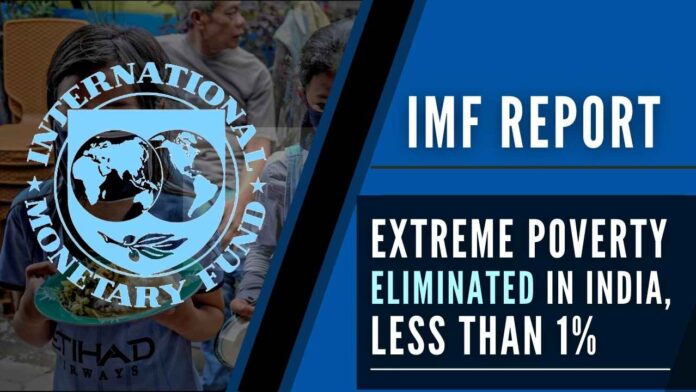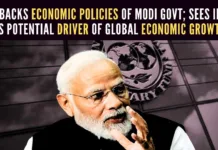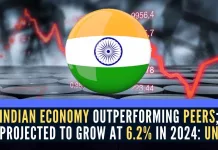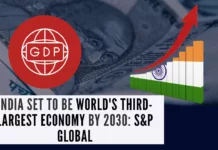
IMF lauds Pradhan Mantri Garib Kalyan Anna Yojana for averting extreme poverty
Crediting the successful implementation of India’s food security programme — Pradhan Mantri Garib Kalyan Anna Yojana (PMGKAY) — for averting the rise in extreme poverty, the International Monetary Fund (IMF) further noted that the PMGKAY scheme was critical in preventing an increase in extreme poverty levels in the country through the pandemic.
In the IMF paper titled ‘Pandemic, Poverty, and Inequality: Evidence from India’, extreme poverty in the country was less than 1 percent in the pre-pandemic year 2019, and food transfers were instrumental in ensuring that it remained at that low level in the pandemic year 2020.
Extreme poverty in India has been less than one percent, the same as in 2019, even during the peak of the pandemic according to the latest IMF report.
“PMGKAY was critical in preventing any increase in extreme poverty levels in India and the doubling of food entitlements worked substantially in terms of absorbing the COVID-19 induced income shocks on the poor,” the paper noted as a resounding endorsement of PM Modi’s food security scheme. Last month, the PM had announced the extension of the PMGKAY scheme, to provide free food grains to those in need, until September this year. The scheme was launched around the first lockdown in March 2020 when the country was stepping into the COVID-19 pandemic. The scheme has been getting extensions every now and then, and most recently, it was extended till March 2022. The announcement for the four-month extension (December 2021-March 2022) was made in November 2021.
According to the IMF paper, extreme poverty, which is less than PPP$ 1.9 per person per day in India, was as low as 0.8 percent in 2019. It noted that it remained at the same level even during the pandemic year 2020. The report noted that the low level of extreme poverty in two consecutive years, including the pandemic year, could be considered the elimination of extreme poverty.
The paper further noted that the post-food subsidy inequality at .294 was also very close to its lowest level of 0.284 observed in 1993/94. The positive growth in terms of eradicating extreme poverty was achieved by several factors as mentioned by the IMF report. The paper noted the Pradhan Mantri Garib Kalyan Anna Yojana (PMGKAY) scheme that supplies free food grains to migrants and the poor as a major factor.
The IMF concluded that the results demonstrated the social safety net provided by the expansion of India’s food subsidy program. It claimed that the program absorbed a major part of the pandemic shock to the Indian economy by providing insurance to the poor and prevented an increase in the prevalence of extreme poverty in India. “This illustrates the robustness of India’s social safety architecture as it withstood one of the world’s biggest exogenous income shocks,” the paper noted.
[With Inputs from IANS]
PGurus is now on Telegram. Click here to join our channel and stay updated with all the latest news and views
For all the latest updates, download PGurus App.
- PM Modi launches another scathing attack on Congress; says ‘Rajiv Gandhi scrapped inheritance law to save family property’ - April 25, 2024
- TN: ED questions five district collectors in illegal sand mining case - April 25, 2024
- ECI issues show cause notice over alleged MCC violations by PM Modi, Rahul Gandhi; seeks response from BJP, Congress chief - April 25, 2024










